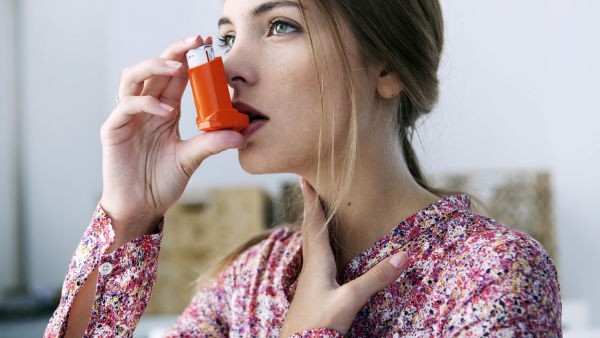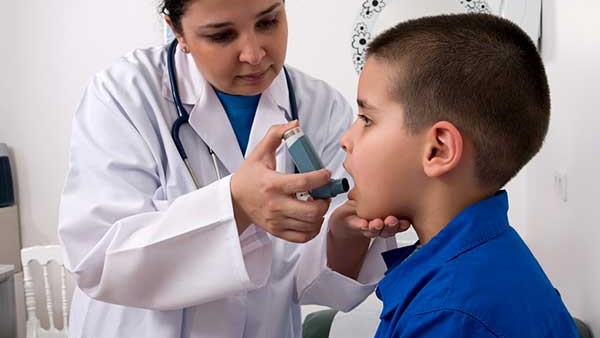Just In
- 2 hrs ago

- 2 hrs ago

- 5 hrs ago

- 12 hrs ago

Don't Miss
- Sports
 Who Won Yesterday's IPL Match 34? LSG vs CSK, IPL 2024 on April 19: KL Rahul Stellar Batting Show Decimate Chennai Bowling
Who Won Yesterday's IPL Match 34? LSG vs CSK, IPL 2024 on April 19: KL Rahul Stellar Batting Show Decimate Chennai Bowling - Finance
 Rs 17/Share Dividend: Record Date On April 26; Buy The ICICI Group Stock To Be Eligible?
Rs 17/Share Dividend: Record Date On April 26; Buy The ICICI Group Stock To Be Eligible? - Movies
 Chief Detective 1958 Episode 2 OTT Release Date, Time, Platform: When & Where To Watch? What To Expect? DEETS
Chief Detective 1958 Episode 2 OTT Release Date, Time, Platform: When & Where To Watch? What To Expect? DEETS - News
 Chinese President Xi Jinping Orders Biggest Military Reorganisation Since 2015
Chinese President Xi Jinping Orders Biggest Military Reorganisation Since 2015 - Education
 Exam Pressure Does Not Exist; Studying Punctually is Crucial; Says Aditi, the PSEB 2024 Topper
Exam Pressure Does Not Exist; Studying Punctually is Crucial; Says Aditi, the PSEB 2024 Topper - Automobiles
 Suzuki Swift Hatchback Scores 4 Star Safety Rating At JNCAP – ADAS, New Engine & More
Suzuki Swift Hatchback Scores 4 Star Safety Rating At JNCAP – ADAS, New Engine & More - Technology
 Dell Introduces AI-Powered Laptops and Mobile Workstations for Enterprises in India
Dell Introduces AI-Powered Laptops and Mobile Workstations for Enterprises in India - Travel
 Journey From Delhi To Ooty: Top Transport Options And Attractions
Journey From Delhi To Ooty: Top Transport Options And Attractions
Holistic Ayurveda Management Of Asthma (Expert Article)
World Asthma day is celebrated on the first Tuesday of May every year. This year it falls on 3 May 2022, stressing that awareness and proper medication are the only keys to remaining healthy and improving longevity as the patient may require life-long medicine. The medicine should produce no adverse reaction or minimal adverse reaction and improve general wellbeing. A holistic approach to medicine seems more promising in managing asthma.
World Asthma Day 2022 theme is 'Closing Gaps in Asthma Care.'
WHO (World Health Organisation) estimates 300 million asthma patients worldwide, i.e. approximately 10 per cent of the population is affected by the disease. The disease is even prevailing in children. WHO estimates 2.5 Lacs deaths due to asthma worldwide.

Asthma is a disease and a symptom; it is better to understand asthma as a big umbrella of disease that occurs due to more than one factor and is characterised by shortness of breath. The commonest cause is a microbial infection, metabolic changes, cardiac causes, lung pathology, chest diseases, haematological factors, pollution, obesity, environmental factors, occupations, allergic reactions, etc. The disease characteristic starts with coughing followed by shortness of breath, which typically occurs as paroxysm (a paroxysmal disease means the symptom of the disease is not observed continuously during illness, but in case of the acuteness of attack, the symptoms are evident but after the attack subsides patient feel completely symptom-free) and after removal of cough, it gives relief in symptom.
Asthma can occur in all age groups and equally affects both sexes. The disease may require needs life-long medication, bronchodilators etc. Lifestyle modification, allergy, and air pollution have increased the problem multiple times. Holistic medicine by herbal medicine has been observed to give good relief and improve wellbeing; moreover, most herbal, if taken under supervision and therapeutic dosages, seldom produce any major medical problems or severe adverse drug reactions.
What Causes Asthma?
The disease, as narrated above, can manifest due to multiple factors. The important factors can be listed as follows:
- Environment pollution - air pollution due to vehicle pollution, factory pollution etc.
- Infections - different infections, including viral infections.
- Occupational exposure - exposure to dust, fine threads (working with cotton industries), asbestosis, etc.
- Metabolic disease - acid reflux, gastric reflux.
- Allergens - food allergies, environmental allergens, etc.
- Other causes are obesity, exercise, hyperventilation, and emotional factor.

What Are The Symptoms Of Asthma?
The disease is presented with wheezing (a musical, high-pitched, whistling sound) (this symptom may also be observed in airway obstruction, such as cystic fibrosis and heart failure, vocal cord dysfunction, excessive dynamic airway collapse (EDAC), bronchomalacia, or tracheomalacia, exercise-induced bronchoconstriction, etc.), coughing - usually non-productive and non-paroxysmal, respiratory distress, etc. Ancient Ayurveda text Charaka Samhita narrates as follows:
"करोति
पीनसं
तेन
रुद्धो
घुर्घुरुकं
तथा|
अतीव
तीव्रवेगं
च
श्वासं
प्राणप्रपीडकम्||५६||
प्रताम्यत्यतिवेगाच्च
कासते
सन्निरुध्यते|
प्रमोहं
कासमानश्च
स
गच्छति
मुहुर्मुहुः||५७||"
Asthma manifests with watering from the nose followed by wheezing sounds like "Ghur - Ghur", followed by respiratory distress; coughing also initiates the attack of asthma.
When To Seek Medical Attention
The disease may require immediate medical attention and medication. The medication that relieves the attack may be pharmacological, herbal, and non-pharmacological measures. The medicine typically releases the spasm of the bronchial tree and gives relief. However, the relief in the symptom depends on numerous factors like frequent exposure to elevating factors that may produce bronchospasm that leads to subsequent asthma attacks.
The status of cough and irritating factors of lower respiratory also reduces the asymptomatic period. Ancient text Charaka Samhita narrates the expulsion of cough plus gives relief in attack immediately (typically attack of cough is the reflex action - that the body tries to remove the irritating factor - the foreign body- cough- etc. out of the body). However, when the symptom worsens, severe respiratory distress, coughing etc., the patient needs immediate medical help.

Primary Care During The Attack Of Asthma
Medical examination and checkups may be necessary in cases of Asthma. A patient suffering from an acute attack ought to be given primary medical care, which can be given as non-pharmacological means as follows:
- Hot drinks that are to be taken as sip-by-sip (preferably tulsi - holy basil treated water may be more useful).
- Hot fomentation - hot fomentation is a quick-acting non-pharmacological means of reducing broncho-spasm. It felicitates ease in airflow to the lower respiratory and relieves the symptom.
- Massage and fomentation - massage with oil or salted oil or medicated oils like - saindavadi taila on chest and back followed by steaming liquefies cough, reduces spasm, removes cough from the lower and upper respiratory tract, the expulsion of cough relieves the symptom for a considerable time.
- Certain medications can be used if prescribed by a physician. Ayurveda medications like Somalata (Ephedra Gerardiana), Tulsi (holi basil), Kanakasava, Somasava, etc., may be used as per the physician's directions.
Management Options For Asthma
As narrated above, asthma presents as a paroxysm; the management is objected to relieving attack (emergency management - episodic management), general management (restoration treatment). The different options available for the management of Asthma are as follows:
Episodic management - As the disease runs a chronic case & paroxysm attack, the management also needs to attend to both the condition. Episodic management may require prompt emergency management. In case of very severe symptoms & severe respiratory distress may require contemporary medical care (including nebulization, etc.) In case of minor to moderate respiratory distress and asthmatic attack, herbal medication & non-pharmacological measures and, respiration practice and yogic exercise can help in reducing the complaints.

Herbal medicine - Various herbal medications like Somlata, Vasaka, Tulsi, Bhrangi, Kantakari, Sitopaladi, Talisadi, Kanakasava, somasava, somakalpa, etc. are different Ayurveda medications that can be used as SOS management.
Non-herbal measures - Several non-pharmacological measures that may be needed in managing asthma attacks - fomentation, oil massage followed by fomentation, nasal drops, etc. The classic narrates the use of oil massage on the chest and back followed by steaming - this pacifies & channelizes Vata and, eliminates Kapha, and opens the micro & macro channels. This gives relief to the patient immediately.
General management or long-term management- As discussed above, the disease runs a paroxysm; the patient is symptom-free during the period of two attacks. There are pathological changes in the lung and lower respiratory tract, i.e., air sacs, bronchi, trachea, etc. This inflammation reduces the lower & upper respiratory tract lumen and typically leads to asthmatic attack. This may be described below:
- Inflammation è congestion è reduced lumen è spasm è respiratory distress (typically observed in bronchial asthma - mostly infective pathology the congestion of the respiratory tract leads to asthmatic attack).
- Spasmè congestion è inflammation è reduced lumen è respiratory distress (typically observed in allergic asthmatic bronchitis, the spasm is followed by congestion).
The SOP standard operative procedure long term management of asthma as per Ayurveda is as follows:
"यत्किञ्चित्
कफवातघ्नमुष्णं
वातानुलोमनम्|
भेषजं
पानमत्रं
वा
तद्धितं
श्वासहिक्किने||१४७||"
Translation - the SOP for the management of asthma is the use of the diet, medication, and routines that are warm, eliminate Kapha, and channel vata. This is also applicable to patients suffering from a hiccup.
Diet management - Diet is also referred to as the biggest medicine. A diet that is wholesome, easily digestible, and most suitable for the individual could have opted. Gastric irritation is one of the major causes of an asthma attack in metabolic syndrome, and hence overeating and frequent eating ought to be avoided. Cold beverages, food made up of the refined floor, fermented foods, deep-fried food, and refrigerated food ought to be avoided. Diet planning is based on the individual constitution; please consult an Ayurveda physician for ideal food.
Routine management - Lifestyle modification and exercise - respiratory exercise and Pranayama increases vital lung capacity, which in the long run improves the health of the lung. These modalities show promising results if practised regularly. In addition, the nasal administration of cow's ghee or oil is an important modality to reduce the impact of air pollution.
Please feel free to consult a qualified Ayurveda physician or Ayurveda hospital for more details and consultation.
-
 healthDelhi Air Quality To Worsen With Stubble Burning: How To Stay Safe? Tips For People With Asthma
healthDelhi Air Quality To Worsen With Stubble Burning: How To Stay Safe? Tips For People With Asthma -
 wellness5 Asthma-Friendly Foods: Breathe Easy With These Foods For Better Lung Health
wellness5 Asthma-Friendly Foods: Breathe Easy With These Foods For Better Lung Health -
 disorders cureH3N2: Respiratory Illnesses Caused By H3N2 Influenza
disorders cureH3N2: Respiratory Illnesses Caused By H3N2 Influenza -
 disorders curePigeon Poop Can Lead To Health Hazards In Asthma Patients In Bengaluru; Know Pigeon Poop Related Health Risks
disorders curePigeon Poop Can Lead To Health Hazards In Asthma Patients In Bengaluru; Know Pigeon Poop Related Health Risks -
 wellnessHoli: Holi Precaution Tips For Asthmatic People
wellnessHoli: Holi Precaution Tips For Asthmatic People -
 nutritionSide Effects Of Eating Curd Every Day; Who Should Avoid It
nutritionSide Effects Of Eating Curd Every Day; Who Should Avoid It -
 wellnessDiwali 2022: 10 Tips To Maintain Healthy Lungs This Diwali
wellnessDiwali 2022: 10 Tips To Maintain Healthy Lungs This Diwali -
 wellnessExpert Article: Exploring The World Health Day 2022 Theme Through An Ayurveda Perspective
wellnessExpert Article: Exploring The World Health Day 2022 Theme Through An Ayurveda Perspective -
 healthCipla To Donate 5,000 Nebulisers To Primary Health Care Centres
healthCipla To Donate 5,000 Nebulisers To Primary Health Care Centres -
 disorders cureNocturnal Asthma: Causes, Symptoms, Risk Factors In Children And Treatment
disorders cureNocturnal Asthma: Causes, Symptoms, Risk Factors In Children And Treatment -
 wellnessWhy Does Asthma Worsen At Night? Tips To Manage
wellnessWhy Does Asthma Worsen At Night? Tips To Manage -
 disorders cureEverything You Need To Know About The Common Cold And Flu
disorders cureEverything You Need To Know About The Common Cold And Flu


 Click it and Unblock the Notifications
Click it and Unblock the Notifications



